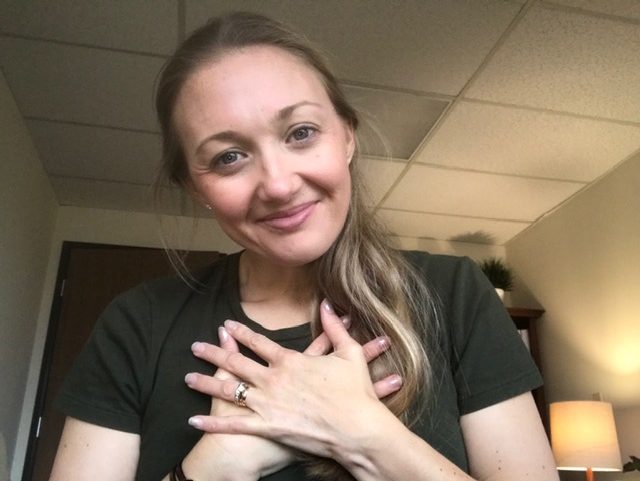
Welcome back to another episode of Your Anxiety Toolkit. Today on the podcast we are talking about facing your fears with Dr. Patricia Zurita Ona, or Dr. Z for short. Dr. Z is a licensed clinical psychologist in California treating clients with OCD, anxiety and trauma. She has written several amazing books including Living Beyond OCD Using Acceptance and Commitment Therapy and The ACT Workbook for Teens with OCD. In our interview, Dr. Z discusses how to use Acceptance and Commitment Therapy to augment treatment of OCD, social anxiety, panic disorder, and phobias. Dr. Z shares with us WHY facing your fears is so important and something you should want to do!
In this episode, Dr. Z talks about,
1. Ruling your thoughts and how to unpack them.
2. How to date your mind.
3. How to know which behaviors are working and which are not.
4. How to find values that energize you.
5. Create your own ERP menu that includes your own triggers and avoidant behaviors.
6. Learn how to react using wisdom.
7. Learn how to identify the ways your brain creates patterns.
Dr. Z's websites www.actbeyondocd.com and www.thisisdoctorz.com
Dr. Z's Instagram @dr.z.passionatebehaviorist
Link to Dr. Z's books https://www.thisisdoctorz.com/books/
ERP School, BFRB School, and Mindfulness School for OCD are all now open for purchase. If you feel you would benefit, please go to cbtschool.com

Welcome back to another episode of Your Anxiety Toolkit. Recently we have talked a lot about self-compassion. If you go back to episodes 134, 146, and 147, you will see self-compassion mentioned a lot. Today we are going to expand on that discussion by learning how to write ourselves a self-compassion letter.
I have actually been doing this with my clients for years and it really just involves putting your self-compassion into words which can actually be so helpful.
There are several steps in writing your self-compassion letter. The first step is to show awareness of your struggle. You might say “I see that you are having a hard time.” Whatever it is, just bring it to your awareness and write it down.
The second step is bringing in some words of unconditional love. No matter how much you are suffering, you still get to be loved and cared for.
The third step is to show yourself some empathy for the distress you are in. You might say “I see you. I see the pain you are going through. I can relate to that.”
The fourth step is recognizing your common humanity. In your letter, you want to bring in the common humanity of your struggle. You could say “Everybody knows what it is like to have anxiety. I am definitely not alone.”
Next you want to normalize the fact that when we suffer we all want to engage in safety behaviors. A safety behavior is anything you may do to try and take away your fear, or shame, or sadness. Safety behaviors usually have unintended consequences and they usually end up causing more problems. Instead you would want to explore some more helpful solutions. You are going to look at the situation and say “How might I help myself?”
The last step is to say something really, really kind to yourself and finally you are going to read your self-compassion letter aloud.
Below is an example of my own self-compassion letter.
Kimberley, my dear one. It’s okay that I’m having a hard time right now. I feel afraid and I really just want to jump out of my skin. This is really a difficult time for me. Now, what I am feeling is not wrong. I’m doing the best I can with what I have at this moment. My suffering, this discomfort I feel, it deserves to be met with kindness and tenderness. I deserve that. I am worthy of this kindness and tenderness I’m giving myself. And I wish for myself to have some peace of mind. I know it’s a hard time, but I know I will find peace.
Now I’m going to find this peace mostly by doing what I’m doing right now, which is changing the way I respond to my suffering. Every single pain that shows up inside me, I’m going to meet with kindness and I’m going to recognize that each moment of suffering is worthy of self-compassion.
I’m strong and I can face fear and I can hold space for my emotions, no matter how hard it is. I deserve to be a safe place for fear, as it rises and falls in my body. I am my best ally and I have everything I need right here inside me to get through these hard times.
Now I promise to be there for myself when things get hard. I’m sending you my love.
Now Kimberley, go gently into this moment, my darling.
ERP School, BFRB School, and Mindfulness School for OCD are all now open for purchase. If you feel you would benefit, please go to cbtschool.com

Welcome back to another episode of Your Anxiety Toolkit. Today on the podcast we are talking with Christian Newman about managing health anxiety.
Christian is an anxiety coach who has done a lot of work learning to manage his own health anxiety and today he is sharing with us the tools that he has used to help regain his life from health anxiety.
In this interview, Christian shares his own struggle with health anxiety and how it impacted his daily life. He shares how a terrifying panic attack led him on a journey to discover how to deal with his health anxiety. He shares with us several important tools that he has used to help him effectively manage his health anxiety. The first tool is the contract that he made with himself. In this contract, Christian wrote down everything that he was going to do to overcome his anxiety. This included stress management, diet, exercise routine, and sleep habits. Once he made this contract, he committed to taking action in his own life. One of the first actions that he took involved addressing the compulsions that fueled his health anxiety. He asked himself what positive actions he could take instead of engaging in the compulsive behavior. This allowed him to teach his brain to engage in something more positive which would then allow him to move forward.
He also discusses how mindfulness including journaling, setting intentions, and meditation have helped along with Acceptance and Commitment Therapy. He explains that at times he still has moments of uncomfortable symptoms or sensations, but he has learned how to recognize what is happening and not allow those feelings to derail his life.
Christian’s Instagram @healthanxiety.coach
Christian’s website www.healthanxiety.coach
ERP School, BFRB School, and Mindfulness School for OCD are all now open for purchase. If you feel you would benefit, please go to cbtschool.com